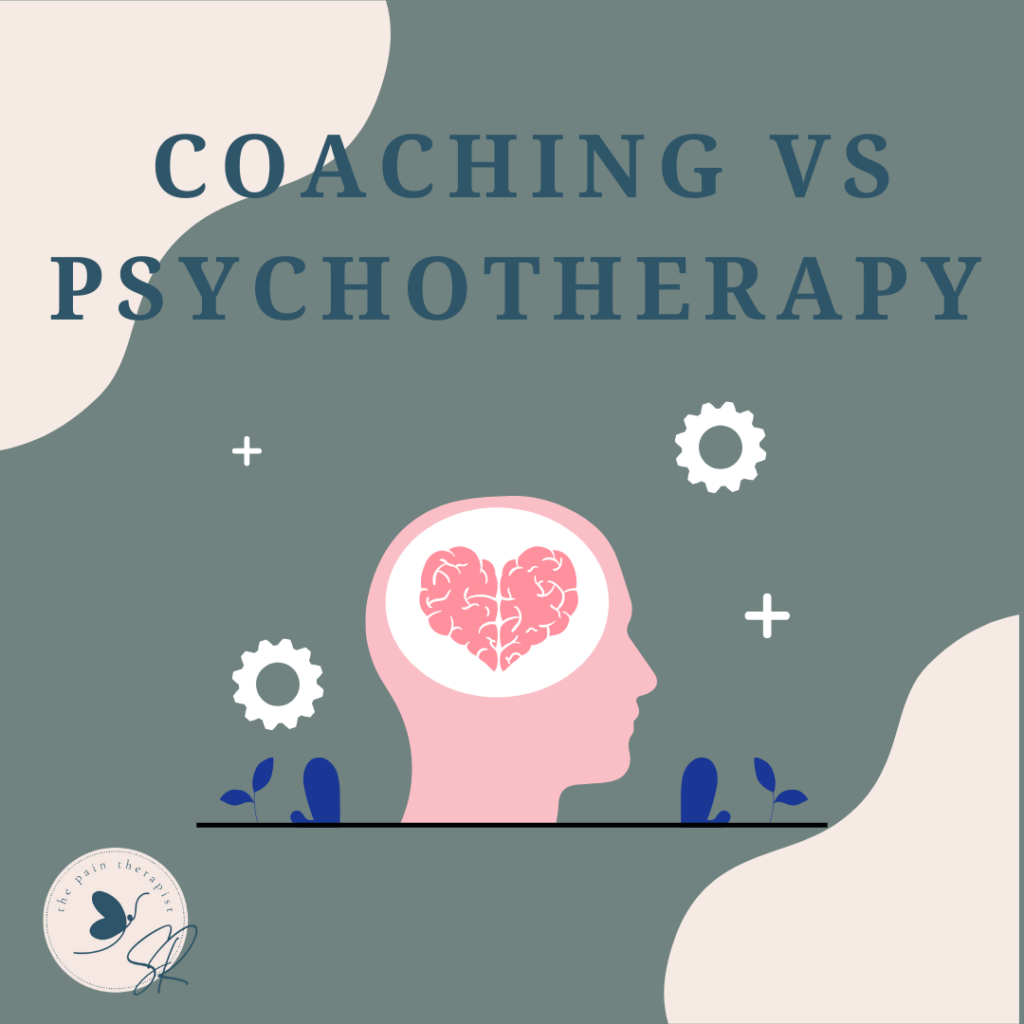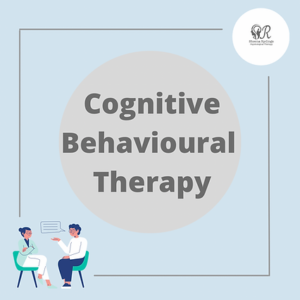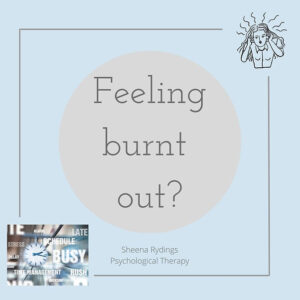The Difference Between Psychotherapy and Coaching: Tailored Support for Your Unique Needs
In the field of mental health and personal development, there is a growing recognition that one size does not fit all. People come to professionals with diverse needs, ranging from navigating long-term psychological issues to achieving specific personal or professional goals. As a psychotherapist with over 15 years of experience working with chronic pain, anxiety, depression, and other complex mental health concerns, I am passionate about helping people live healthier, more fulfilled lives. Recently, I’ve also added coaching services to my practice to offer a flexible, goal-oriented approach for those who may not need traditional therapy but are seeking support in reaching specific objectives.
In this blog post, I’ll explore the key differences between psychotherapy and coaching, how each approach can serve unique needs, and how offering both can make support more accessible and tailored to what people are truly looking for.
Understanding Psychotherapy: Exploring the Roots of Pain and Healing
Psychotherapy is a deep and transformative process. The primary focus of therapy is to help individuals understand and address the underlying causes of emotional pain, mental health struggles, or psychological distress. In my work, I often help clients with chronic pain, anxiety, or depression explore the mental and emotional roots of these conditions, allowing them to gain insights into why they may be struggling and how to better cope with their experiences.
Psychotherapy is generally longer-term and allows for a thorough examination of past experiences, patterns, and deeply ingrained beliefs. It’s a space for clients to explore, understand, and often reframe their emotions, thoughts, and behaviors. For example:
- Managing Anxiety and Depression: Therapy provides a safe, supportive space to delve into the reasons behind these feelings. By examining both past experiences and present triggers, clients can gain insight and work towards long-term healing.
- Chronic Pain and Mental Health: Many people dealing with chronic pain also experience mental health challenges such as depression or anxiety. Therapy helps individuals work through the complex emotions that can arise, as well as the challenges of accepting and living with long-term physical pain.
- A Need for New Resources: Therapy can help develop emotional or mental resources that haven’t been accessible before, giving you the tools to manage life’s challenges more effectively.
Psychotherapy is therefore more exploratory and in-depth, making it ideal for those who want to understand the "why" behind their pain or emotional challenges. In this sense, therapy is about healing, treating, and guiding you to move from a place of pain or distress to a place of stability and self-acceptance. This approach provides profound, long-lasting benefits for people looking to address more complex mental health issues and engage in significant self-discovery.
The Focus of Coaching: Targeting Goals with Clarity and Support
Coaching, on the other hand, is usually shorter-term and more goal-oriented. While psychotherapy looks to unravel the root causes of pain or emotional distress, coaching is about action and progress. In my coaching practice, I work with individuals who may already have a clear objective or personal challenge and are looking for guidance, structure, and support to move forward.
Coaching is particularly beneficial for people seeking help with:
- Specific Goals or Life Changes: Coaching offers clear, practical steps and support to help clients make a significant shift, whether it’s in their career, relationships, or personal life. Together, we set achievable milestones and work towards them step-by-step.
- Skill-Building and Learning: Coaching also provides an opportunity to gain new skills, whether in stress management, pain management strategies, or resilience training.
- Focused Personal Growth: Coaching doesn’t typically involve delving into past traumas or psychological barriers but instead supports clients in leveraging their strengths to achieve a future-focused goal.
One example of coaching might be working with someone living with chronic pain to develop better lifestyle management strategies or helping a client to build a structured plan for coping with stress. In both cases, the focus is not on examining the causes but rather on building the skills needed to navigate current challenges more effectively.The relationship is one of equals, where I am here to support you in defining and reaching the goals you’ve set for yourself. Unlike therapy, coaching isn’t focused on the “why” behind your struggles; instead, it’s centered on the “how” of moving from where you are now to where you want to be.
How Offering Both Services Makes Support More Accessible
By offering both psychotherapy and coaching, I can help meet a broader range of needs and make support more accessible to those who may feel more comfortable with one approach over the other. Many people may feel hesitant about therapy but are interested in coaching to achieve a specific goal. For others, addressing deeper, unresolved issues through therapy may be essential before moving forward with a more goal-focused coaching process.
This dual approach also allows for flexibility. Some clients may start with coaching and, as they move through their goals, find that they’d benefit from diving deeper into underlying issues through therapy. Others may find that after progressing in therapy, they’re ready to transition to a coaching model to work on specific objectives or life changes.
Ultimately, offering both psychotherapy and coaching provides a spectrum of support. Whether someone needs in-depth psychological exploration or focused, goal-oriented assistance, I aim to make both options available so that each person can find a pathway that feels right for them.
Which Path Is Right for You?
If you’re unsure which approach might be best for you, consider your current goals and needs. Therapy may be a better fit if you’re looking to explore deeper emotional issues, find the root cause of struggles, or process life’s complex experiences. Coaching may be ideal if you have a specific goal in mind or want to develop practical strategies to enhance your current life.
Feel free to reach out to discuss your unique needs and find the right approach for you. Everyone’s journey is different, and by offering both therapy and coaching, I hope to make support more accessible, flexible, and meaningful for each individual.



